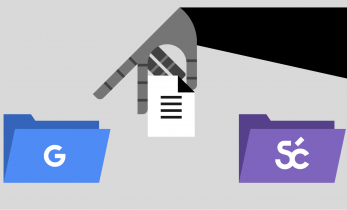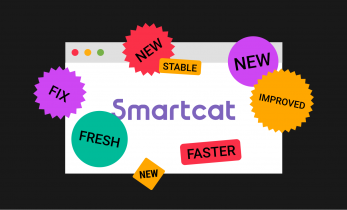Greater than 2 minutes
There is no machine translation post-editing
That’s called computer-assisted translation.
There is a huge global need for high-quality translations. Just look at the number of agencies, freelancers, CAT tools, platforms… There is demand! Globalization means competition between translators, but also means huge need for rapid and efficient translations, everywhere, all the time. Contracts, emails, ads, websites, ebooks, blog entries, brochures, articles…
Those clients who ask for what they now call “MTPE” make big money with our translations.
Machines do a ridiculously good job. The process of translating a document from a source language to a target language is so demanding a task that one can only admire the achievements of modern technology. Bravo guys, your machines do a fantastic job. Although, mediocre at best, or simply inaccurate, compared to what a rookie translator can achieve.
Machines have now solved the game of checkers. You can’t beat a good software. You could potentially draw with perfect play.
Machines have not solved the game of chess theoretically, but in reality Komodo, among others, is unbeatable.
Experts were stunned when they witnessed a machine being victorious over a go champion. They thought it was impossible.
People now say that the next challenge developers of artificial intelligence systems are willing to take is StarCraft.
Now, I believe that the toughest challenge for machines, that will not be broken in our lifetime, is the translation challenge.
Why?
Because languages are humanly creations. Therefore, imperfect, awkward, ambiguous and incomprehensible without a proper context.
I studied linguistics at university. It wasn’t my favorite topic. I liked literature, poetry, novels, and long-haired authors contemplating the autumn sky and the their own miserable fate on this god-forsaken earth. But this linguistics course… I enjoyed! There was something passionate and tragic about the way the professor talked of the semantics of French pronouns. To be honest, I’m not sure I did not create this romantic memory of this professor after his death, that occurred a few months after his own wife’s death. But I’m sure I enjoyed his teaching.
He told us he thought Esperanto, together with every man-made language (never said anything about Dothraki or High Valyrian though), was doomed. It was just too perfect to work. Languages can only work if there is a possibility of misunderstanding. Ambiguity is an essential part of communication.
I was fascinated by this idea, at the time, and I still am.
I believe it is that indistinguishable ambiguity that renders language almost totally unreachable by machines. For the time being, and for many decades to come.
Language is the machine’s Neverland. It’s through the looking glass. Across the Styx. It’s another level of perception. Ours.
Translation is a human task. Computers don’t translate, they help translators. If the world wants good translations, the world needs to pay translators for their hard, fascinating, and demanding work.
We do not edit, we translate.





Good point, Fabien! Creative use of language will get sells for a business, and not standardized machine translation.
You are absolutely right Fabien. Lately, due to this whole “Google translates as good as a human” fiasco, a lot of small companies and individuals have started relying more on machine translations instead of its human counterpart. The result: I am getting too many proofreading jobs. And I have come to a conclusion that, though machines are good enough to render a text, they cannot really personalize it and they are not concerned with the audience of that document. Its like you said, “Computers don’t translate, they help translators.”
I’m glad you’re sharing my point of view! I think the community of translators is becoming aware of this phenomenon.
“We do not edit” totally makes a great GOT House motto. Jokes aside, thanks for inspiring reflections on such a great truth – because it is.
Do you think there is anything that we can and should actually do about this?
That’s exactly what I had in mind when writing the article, I thought no one would notice! 😀
House Translator, “We do not edit”
I think refusing post-editing jobs seems like a good way to start! Thanks Eleonora.
Thank you for an interesting (and not very long) article, Fabien! However, chess is also a human creation but Deep Blue won a reigning world champion 20 years back. The sad truth is that machines will replace translators in future. Except for literary translation. That’s my opinion.
Thanks for your comment Oleg. I do hope, and think, that you’re wrong ! 😉
Oleg, as a technology vendor selling translator software with embedded MT technology, I say to you, “dream on.” Our software performs better for individual translators than every online translation service, bar none. It converts a translator’s own TMs into a personalized MT engine. It doesn’t work at all unless a translator feeds it TMs.
Their personal engine serves that translator with 30% to 50% exact matched translations that require zero editing. Isabella Massardo’s engine generates 700% more exact match translations than Google’s newest neural machine translation engine on the same set of Isabella’s human translations (700 vs 102 of 2,353). Still, any other translator using Isabella’s engine (requiring her to gift the engine to the other translator) would not see this exact match rate simply because every translator is a human who prefers his/her own style.
Let’s acknowledge that machines will never replace humans, stop trying to force translators to work for machines and make tools that assist translators. We’re doing our part.
Figures! Exactly what I needed! That’s very useful Tom, many thanks.
I like your spirit, Fabien. Very inspired article. I hope you are right 😉
Inspired and inspiring, I hope! Thank you Giovanna.
Fabien said: “Languages can only work if there is a possibility of misunderstanding. Ambiguity is an essential part of communication.”
Absolutely… and that’s the wonder, the magic, and the beauty of it. Linguistic symbols have been used as the example par excellence of multivocality. Intriguingly, the same idea applied to agricultural and forest biomes has explained why greater complexity and biological “ambiguity” makes natural systems far more resilient and sustainable than those with little variety.
I agree true translators should not take on MTPE requests. Several studies of translation students who did more than 1,000 hours of MTPE demonstrated that their translation abilities deteriorated–sometimes so badly that professors at one translation department in the UK decided to separate translation students from MTPE ones and train them in different tracks. Not only will accepting MTPE jobs cannibalize our profession but it cannibalizes our brains!
Thanks for speaking the truth.
This parallel with biology is something I really need to explore deeper! Thank you so much for this inspiring comment…
Hi Catherine, this is so true! I once worked for a company with great copywriters and content creation workflows! The source texts were creative, the terminology was consistent, and every single text was meeting the brand and compliance requests!
Some years later, the company merged with another company and we started to receive texts to translate from new copywriters and they were a mess. For a while I still remembered the good formulations from the previous source texts and continued to translate with the same quality and consistency as before.
But after some months, and reading so many texts from the new copywriters, I started to forget the old formulations. And everything turned into a big salad…
The translations can only as good as the source text.
Claudia
Bravo, Fabian! The technology has made major leaps forward in only the last 10 years, but today’s “MTPE/PEMT best practices” haven’t changed since formulated in 1965. Our customers find “proofread/accept/discard” is more efficient than those stale 50-year old guidelines.
Thank you Tom for backing with objective data what I awkwardly and instinctively felt.
“Languages can only work if there is a possibility of misunderstanding” – ha-ha, that’s a really good point 🙂 Thanks for this awesome post, Fabien. Will add it to my sharing schedule.
That’s great Simon, thank you!
There was time when people say AI will never beat human in a go chess game, and yet it’s better day by day until it beats the best player.
We must agree MT gets better day by day, and 5 years later it will be a lot better than it is today, and then another 5 years later, and then another… until it beats average human translators with simple technical translations, and then the market gives way to machines.
It will never beat the best humans, the conclusion may be true, but MT is there, and it’s already a game changer.
What about using MT as a mere reference tool as on-line dictionaries? If it still causes frowns, think of 20 years ago maybe, how school teachers will frown at electronic dictionaries.